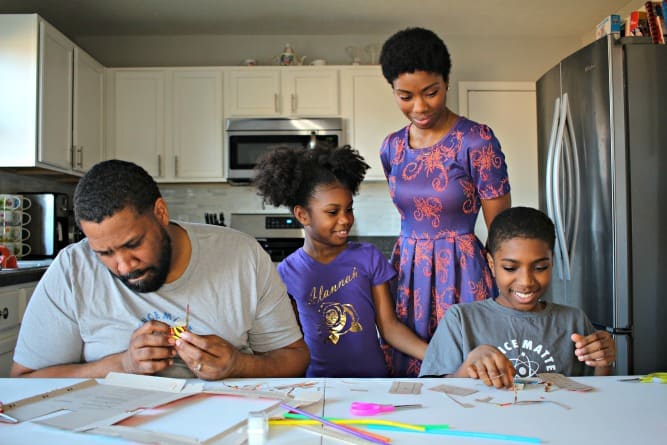Once your child becomes of age to begin their education journey, the default is to put them in a school system whether it’s public or private. However, more and more Black families are taking an alternative approach: homeschooling. According to 2020 U.S. Census Data, Black homeschooled children grew from 3.3% to 16.1% in just that year alone.
Parents all over the country have been sharing their stories of their decision to homeschool their children, including on-air host, personality and mother of three, Amiyrah Martin.
For Martin, the decision to homeschool her children stemmed from a realization born out of necessity rather than choice.
“We started our homeschool journey in response to finding out there were lots of racist interactions happening at our son’s school, but the administration chose not to inform Black parents about these interactions,” she revealed.
It was a pivotal moment that propelled her into a realm where autonomy intersected with education. However, stepping into the world of homeschooling was a lonely road. Initially, the landscape seemed sparse, with few Black families treading the homeschooling path.
“We only knew of one other Black family who homeschooled but they lived states away,” Martin recounted. “Luckily, we didn’t let that deter us from starting on the journey. Now Black families contact us about starting this learning journey for their families.”
Reflecting on her journey, Martin contemplates the road less traveled.
“One thing we definitely could have done differently was to create a Black homeschool group in our area,” she reflected.
Community, she emphasizes, is the cornerstone of any educational endeavor, providing support and solidarity.
The Challenges of Homeschooling
The journey of homeschooling for the Martin family was not without its challenges.
“Our biggest hurdle was realizing homeschooling is not schooling at home,” she explained.
The idea of traditional schooling had to be unlearned by Martin herself in order to give her children an authentic view of the world around them. Although it was a challenge, it gave her the opportunity to raise her Black children with a specific kind of self awareness they may not have been able to achieve in a traditional schooling setting.
“Homeschooling in general is seen as a way to rebel from a well-built system,” Martin explained. “As we’ve seen in the past, any type of questioning of systems will always be suppressed. When Black families take ownership of their education and the education of their kids, it causes a ripple that many may not want to see or feel.”
As a personality, Martin shares the intricaices of her life online. When it comes to informing her audience about the realities of Black homeschooling, she is often met with backlash towards the ways she approaches it. She makes sure to emphasize the Black experience for her children however, not many agree with that.
“One of the biggest misconceptions I hear is that homeschooling is homeschooling, and there’s no reason to place ‘Black’ in front of it,” she shared. “This negates that we have our history and that history has been kept from us for centuries. “
Through the lens of Amiyrah Martin’s journey of homeschooling her three children, the stigma surrounding Black homeschooling begins to unravel.
“Beautiful things happen when the Black community takes control of how, what, and when we learn,” she concluded.
